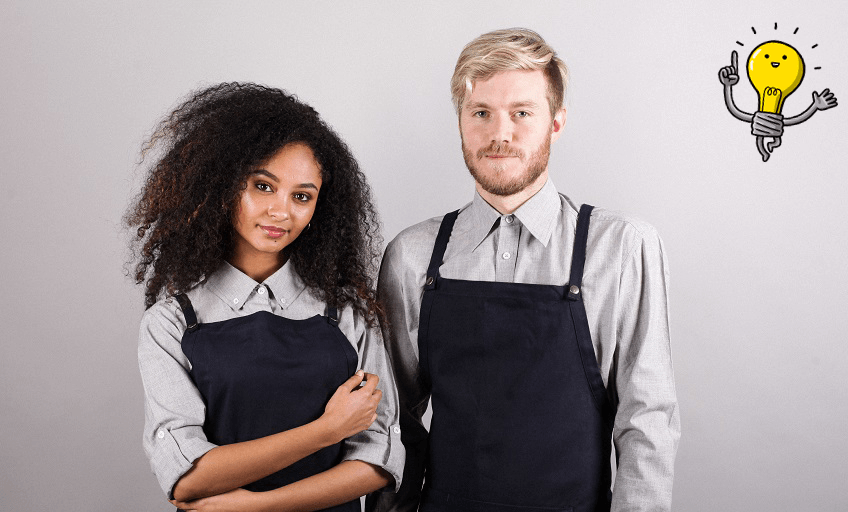In our Q&A series, The Lightbulb, we ask innovators and entrepreneurs to tell us about how they turned their ideas into reality. This week we talk to Little Yellow Bird founder Samantha Jones whose social enterprise makes sustainably and ethically-made uniforms and basics.
First of all, give us your elevator pitch for Little Yellow Bird.
We’re a supplier in pre-made, organic cotton uniforms, making apparel for the hospitality and corporate sectors. Through creating garments we’re providing employment opportunities for the people and communities where the products get made.
What were you doing prior to LYB?
Before launching the business I was in the military for about six years. I was a logistics officer for the New Zealand Air Force, mostly dealing with supply chain management… Little Yellow Bird was then later launched in 2015.
So how did the idea for LYB come to you? What was your lightbulb moment?
Basically, the idea came to me because I always wore uniforms when I was in the military. I was living and breathing military life so I didn’t really buy a lot of clothes. After I left the military, I ended up getting a job in the corporate sector. I realised I needed to buy a corporate wardrobe for the role, but I found that there was nothing out there that matched my values: fair trade, ethically-made, and sustainably produced.
Since then, it’s been quite the journey. In year one, I went over to India [where LYB clothes get manufactured] and looked at the factories and some of the supply chains there. That’s sort of what got me started: meeting with a lot of other producers, meeting with the farmers etc.
Why India? And why choose to operate LYB as a social enterprise?
Part of it was to do with our commitment to corporate social responsibility. We really wanted it to be about providing employment… and providing [our] workers with fair wages and decent working conditions, especially in a developing country [like India].
In terms of being a social enterprise, I think that it just felt natural to the values of what we were doing. We’re also a certified B Corp which basically means that we meet [the highest standards of social and environmental performance, transparency, and accountability].
What have been some of your biggest challenges since launching LYB in 2015?
I guess one of them has to do with growing pains; just trying to get the balance right between making sure you have enough stock on hand so you can deliver, but not having too much stuff at the same time.
Is LYB profitable? What sort of numbers are you bringing in?
Yes, we pretty much break even. We’ve just launched an equity crowdfunding campaign on PledgeMe to help us scale up. We’re valuing Little Yellow Bird at $3.4 million and looking to raise a minimum of $300,000 up to a maximum of $750,000.
We now provide uniforms for over 400 companies in the hospitality, retail and corporate sectors.
Finally, what can we expect for the rest of 2019?
At the moment all our focus is on our PledgeMe campaign. For our campaign to be successful we have to reach at least $300,000. If we raise that capital, we’ll be able to increase our reach, grow our team, and expand into new markets.
We’re also set to deliver our first school uniforms by the end of 2019. It’s definitely a growth opportunity for us and we’re aiming to invest more in this market from next year.
